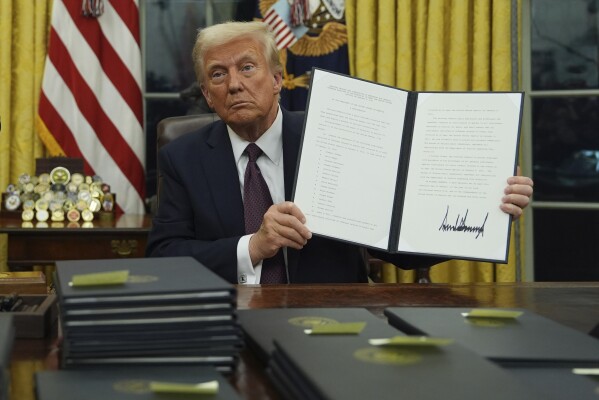Filling the Federal Reserve Vacancy
President Trump announced on Sunday that he will appoint a new governor to the Federal Reserve in the coming days after Governor Adriana Kugler resigned with months left on her term. He spoke to reporters on his return from Bedminster, New Jersey, and said that Kugler left because she supported his call for lower interest rates while the Fed held firm.
Trump has pressed the central bank to cut rates, arguing that lower borrowing costs can help the nation save money. His comments came after the Fed chose to keep the policy rate at 4.25 to 4.50 percent at its last meeting.
New Leader for Labor Statistics

At the same time, Trump said he will name a new head for the Bureau of Labor Statistics after he fired Commissioner Erika McEntarfer on Friday. He claimed, without evidence, that she altered past job numbers to favor a rival political candidate.
The move followed a report showing that employers added just 74,000 jobs in July, far below forecasts, and that May and June revisions cut 258,000 jobs from earlier tallies.
Political Pressure on Economic Agencies
The recent actions have stirred concern among economists and some lawmakers who warned of growing political sway over agencies tasked with independent analysis. National Economic Council Director Kevin Hassett defended the firing, calling the data “very unreliable” and pointing to a pattern of biased reporting.
Yet former BLS Commissioner William Beach, a Trump appointee, said no one can fake the raw survey data that underlies the monthly report.
Implications for Monetary Policy and Data Integrity

By filling the Fed vacancy with a like-minded official, Trump could tilt future rate discussions toward his view that lower costs will drive growth and reduce government interest payments. Many experts say that political influence in central banking can erode trust in policy steps and feed market uncertainty. Likewise, changes in BLS leadership may alarm users of labor data who rely on consistent methods to track hiring, wages, and unemployment rates.
Personal Analysis
When leaders interfere with institutions meant to stand apart from politics, they risk undermining confidence. People follow Fed signals to decide if they should buy homes, rent, or borrow to start a business. If they think rate moves come from a political push instead of a careful study, they may doubt each announcement. The same holds for job numbers that underpin policies on taxes and spending. Reliable data drives choices in government and business. When that data could bend to politics, it clouds the path ahead.

